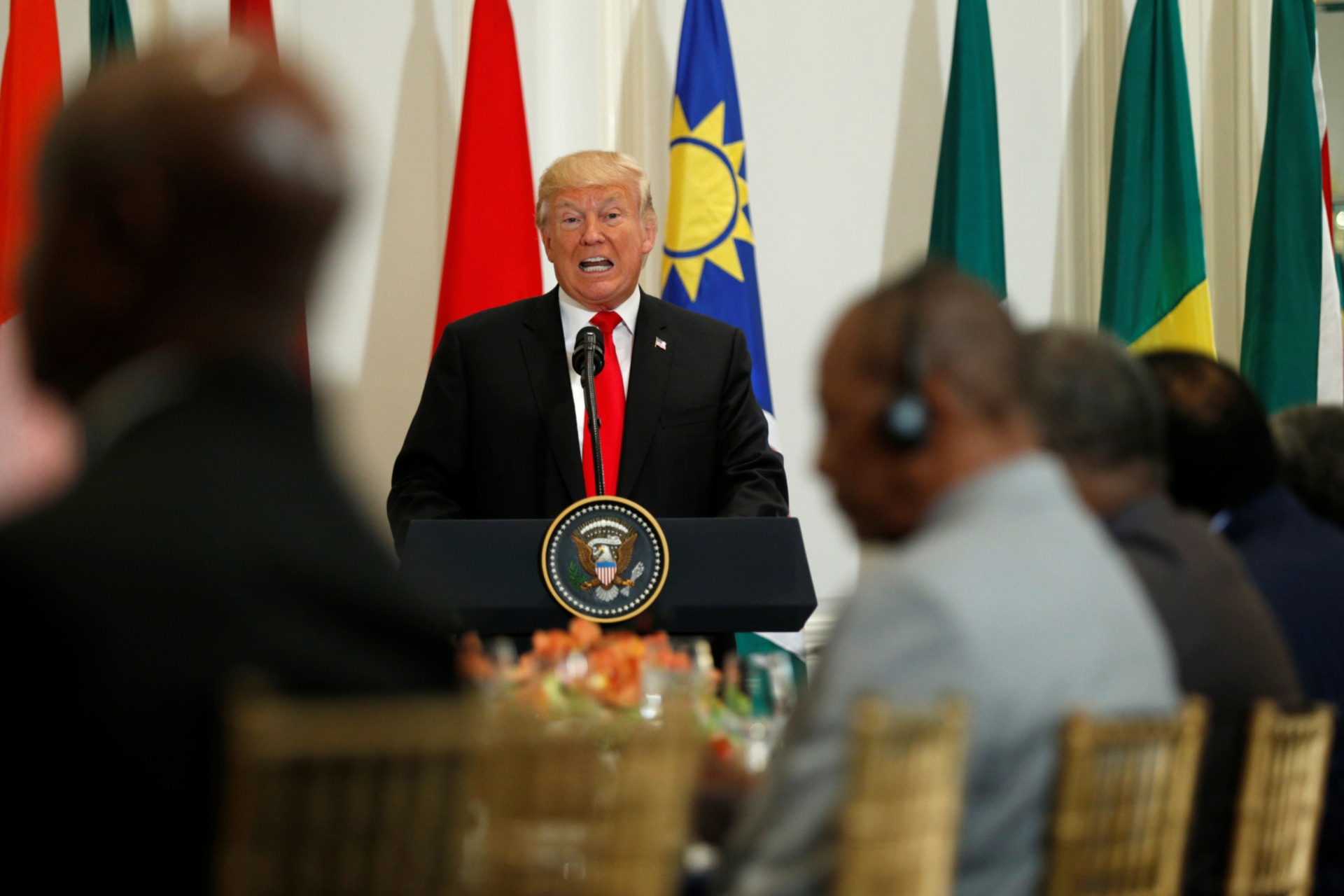African Anger Builds Over President Trump’s Racist Comments

By experts and staff
- Published
By
- John CampbellRalph Bunche Senior Fellow for Africa Policy Studies
Far from dissipating, African anger is building over President Donald Trump’s negative characterization of Africa on January 11. African leaders are rejecting President Trump’s denials that he used gutter language, and a media review shows there is an emerging consensus among African opinion leaders that he is a flat-out racist. There is indignation among Africans when Americans seem to tip-toe around what they regard as the overwhelming evidence of his racism.
Over the Martin Luther King holiday weekend, Botswana, Ghana, Haiti, Namibia, Senegal, and the African Union have made formal diplomatic protests. Botswana, with among the best social and economic statistics on the continent, has asked the administration “to clarify if Botswana is regarded as a ‘shithole country.’” Cyril Ramaphosa, the new president of South Africa’s governing African National Congress, has characterized the president’s remarks as “really, really derogatory, and highly offensive.” Nigeria’s foreign minister has called in American diplomats to explain the president’s remarks, characterizing them as “deeply hurtful, offensive and unacceptable.” Over the coming days, there are likely to be more official African responses.
Nigeria and South Africa are the continent’s economic and political powerhouses. With Botswana, Ghana, Namibia, and Senegal, the five are on a democratic trajectory, albeit at different stages. U.S. cooperation with Nigeria in the fight against terrorism had been growing. While the bilateral relationship with South Africa is no more than “correct,” relations among the other four with Washington have been close—up to now.
According to the New York Times, the State Department has instructed its missions not to deny that the president made the remarks attributed to him, but merely to listen. Given African fury, that approach is wise. In Africa as in the United States, there is skepticism that the president tells the truth, and his denials are discounted.
The president’s comments have damaged the interests of the United States in the world’s second largest continent with more than one billion people. The political and security consequences are likely to be negative, especially in multilateral fora such as the United Nations or the World Trade Organization. Alienation of Africans can have consequences on issues where the administration is seeking to rally world opinion, like North Korea, for example. Further, this racist and anti-African rhetoric is likely to strengthen the hand of those in Africa that would see their countries turn away from the West and towards more authoritarian governments, like those of Russia and China.
Secretary of State Rex Tillerson was expected to travel to Africa sometime in the near future, even though there is still no assistant secretary of state for Africa in place. If he does make the trip soon, his reception is likely to be frosty.